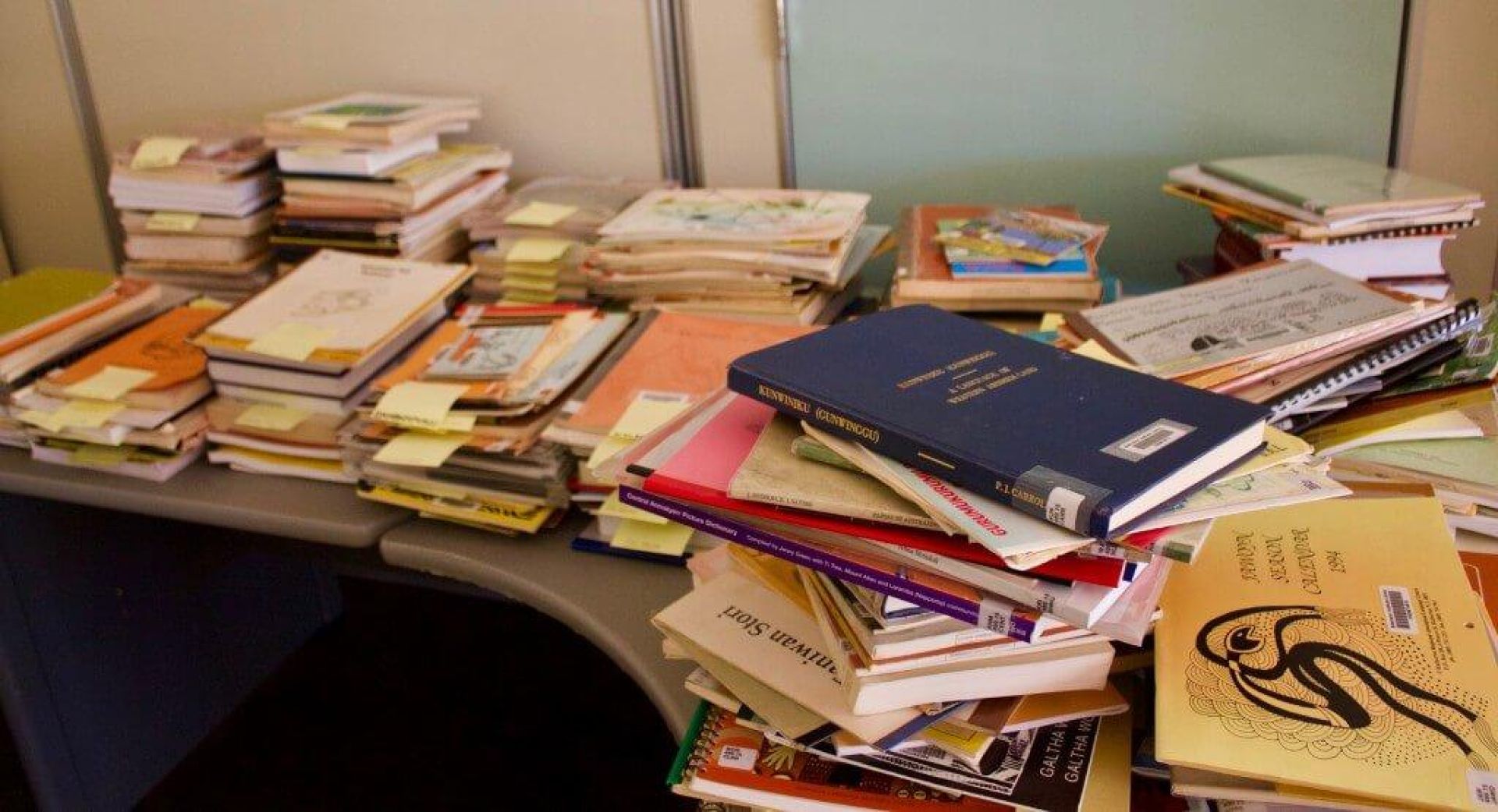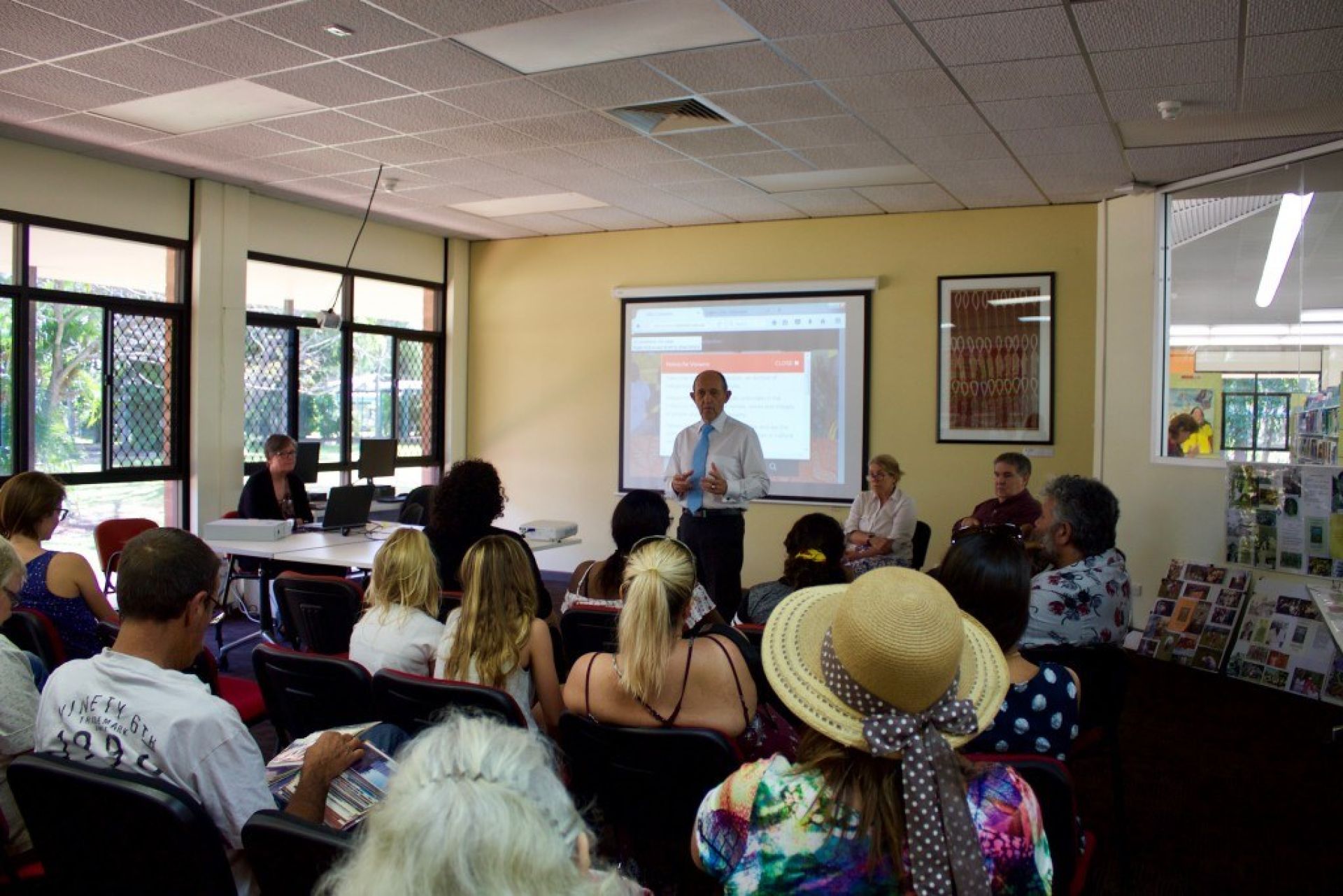

An exciting new website and digitisation project for collecting and archiving of Aboriginal and Torres Strait Islander language materials has been launched at Batchelor Institute of Indigenous Tertiary Education June 29th. Known as the CALL Collection and jointly managed by Batchelor Institute’s Centre for Australian Languages and Linguistics (CALL) and the Batchelor Library, the archive includes materials that have been collected over the past 40 years by communities, students and staff.
The archive houses texts, audio, video and eBooks about Australia’s First Nations languages. In the past students and visitors could only access the archive through visiting Batchelor Institute’s Library, an hour and fifteen minutes outside of Darwin in the Northern Territory. Now, this new innovative website means people can see works in their language and get copies of their language resources without having to travel to Batchelor.
The aim of the digitisation project is to keep materials safe, allow people to see or use their language resources and house both digital records and digitised versions of print and analogue materials.
The project involves an extensive permission strategy to reach creators, copyright holders, and cultural and community authorities, to find out if they would like their works uploaded on the website.
‘It’s a huge task to seek all the consent, populate the website and bring all the records into this new format,’ says CALL Manager Maree Klesch.
‘But we’re looking forward to input from people who are keen to see and use the CALL Collection. Past and present Batchelor Institute students, language workers, language champions and linguists who work with CALL and Batchelor Institute Press are already working with us to have their language work made available.’
‘This project provides access to language resources made in the past and present, provides resources for language revival and maintenance activities and give opportunities for repatriation of materials. From the old to the new, little-bit-by-little-bit we are working with language custodians, students and linguists to bring their work onto the website and support keeping culture and language learning strong.’
Visit the CALL Collection here.

Words and images by Chelsea Heaney.
